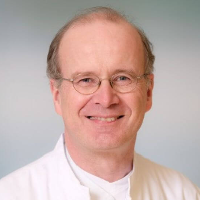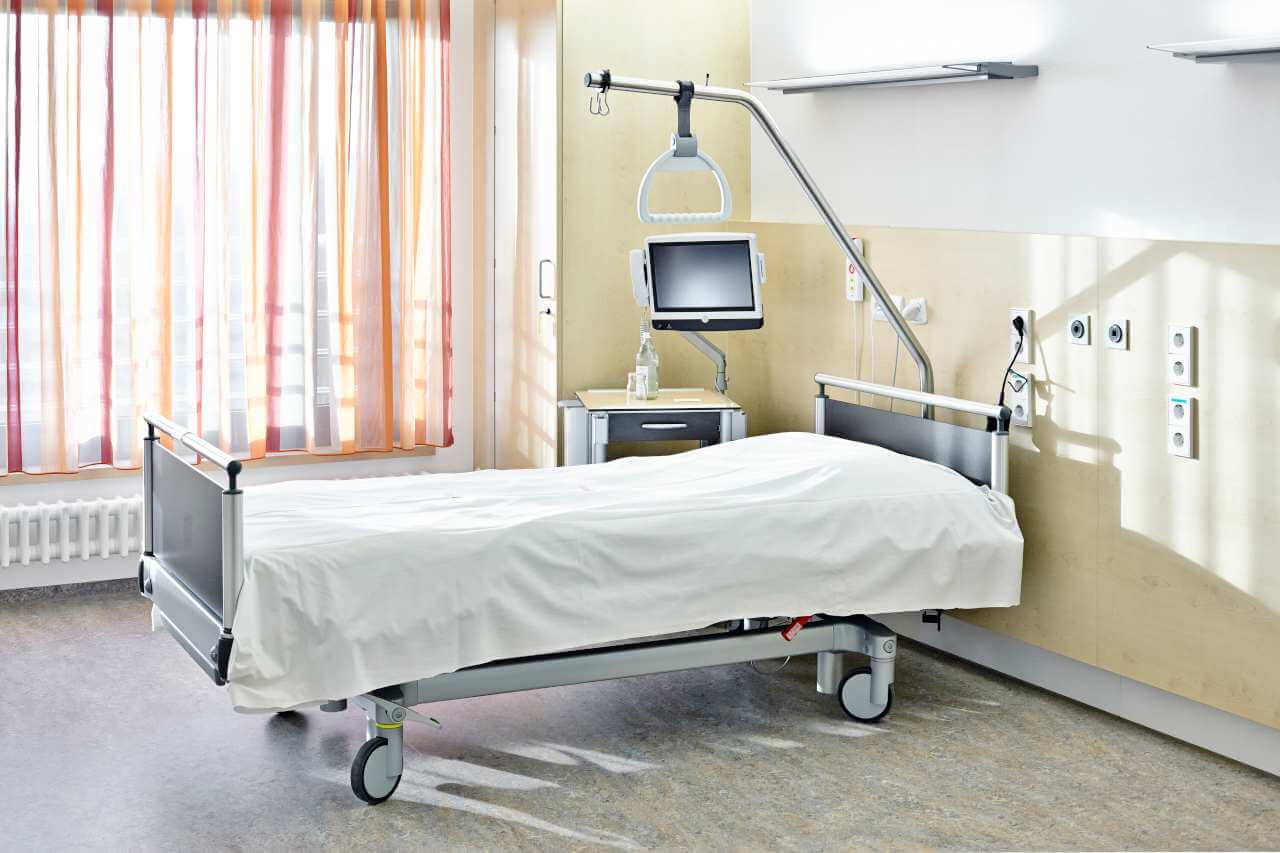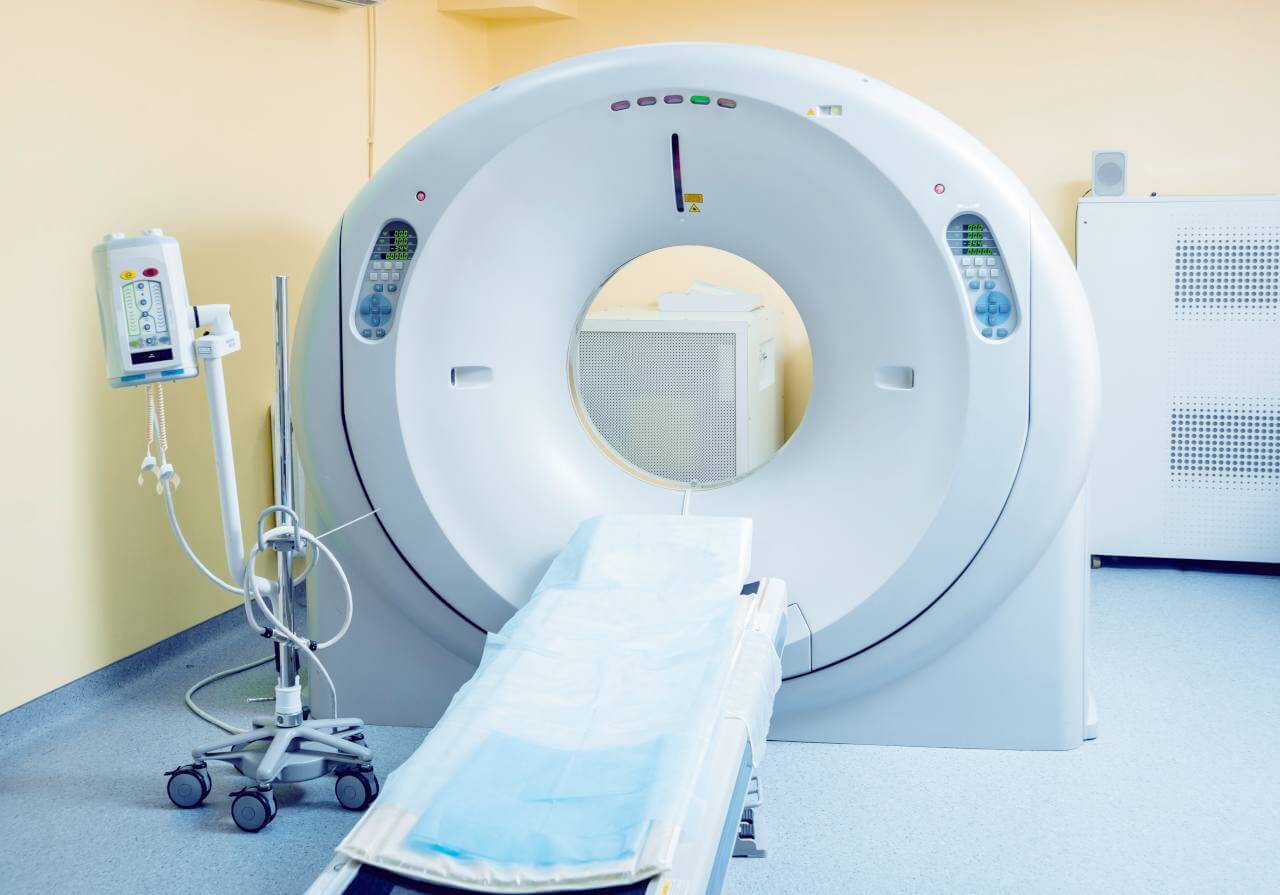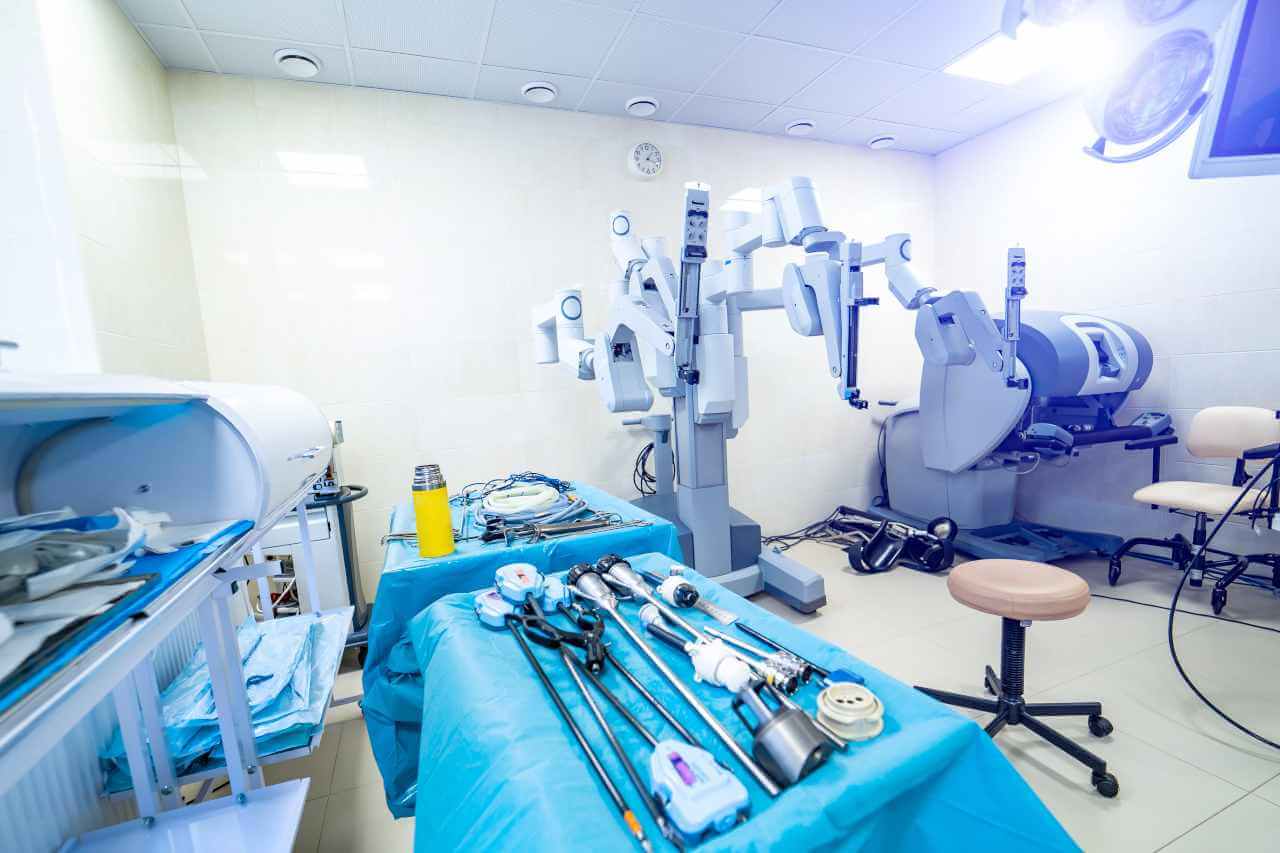
The program includes:
- Initial presentation in the clinic
- clinical history taking
- review of medical records
- physical examination
- laboratory tests:
- complete blood count
- general urine analysis
- biochemical analysis of blood
- inflammation indicators (CRP, ESR)
- indicators blood coagulation
- neurological examination
- functionality x-ray
- CT/MRI scan
- neuropsychological tests (on indications):
- ENMG (electroneuromyography)
- EEG (electroencephalography)
- SEPs (somatosensory evoked potentials)
- VEPs (visually evoked potentials)
- BAEP tests (brainstem auditory evoked potential)
- preoperative care
- empyema resection under neuronavigation
- blood transfusions (if needed)
- 1-day intensive care unit stay
- postoperative MRI control
- symptomatic treatment
- control examinations
- the cost of essential medicines and materials
- nursing services
- full hospital accommodation
- developing of further guidance
Required documents
- Medical records
- X-ray examination, MRI/CT scan (if available)
Service
You may also book:
 BookingHealth Price from:
BookingHealth Price from:
About the department
The Department of Neurosurgery at the Asklepios Hospital Altona Hamburg performs all modern surgical procedures to treat diseases of the brain, spinal cord, and peripheral nervous system. The department's specialists cooperate closely with neurologists and neuroradiologists, thanks to which patients with diseases of the nervous system are provided with comprehensive medical care. The department's neurosurgeons successfully operate on patients with brain tumors, hydrocephalus, trigeminal neuralgia, hemifacial spasms, brain aneurysms, traumatic brain injuries, peripheral nerve compression syndromes, and spinal pathologies. Surgeons perform operations in high-tech operating rooms equipped with state-of-the-art surgical microscopes, endoscopic devices, neuronavigation systems, and intraoperative imaging devices. All these technical resources allow the physicians to provide patients with effective and safe treatment because damage to vital anatomical structures during operations on the brain and spine may provoke irreversible neurological deficits. The department's experienced neurosurgeons perform more than 2,000 surgical interventions of varying complexity every year. The Head Physician of the department is Prof. Dr. med. Dr. h.c. Uwe Kehler.
The department has exceptional experience in the treatment of brain tumors. The specialists most often deal with meningiomas, gliomas, and brain metastases. The department's neurosurgeons perform about 400 operations for the resection of benign and malignant brain neoplasms annually. The essential tools for the department's team of neurosurgeons during brain cancer surgery are surgical microscopes, computerized neuronavigation, neurophysiological monitoring, intraoperative ultrasound, and endoscopic equipment. In cooperation with doctors from related medical specialties (neurologists, neuroradiologists, oncologists, radiation therapists, etc.), the optimal complex of conservative treatment methods is individually selected for the patient. Most cases of brain tumors require comprehensive treatment, including surgery, chemotherapy, radiation, and other methods.
The medical center also regularly operates on patients with hydrocephalus. This pathology is characterized by excessive accumulation of cerebrospinal fluid in the brain ventricles, which leads to increased intracranial pressure. If hydrocephalus is confirmed, surgery is inevitable. Depending on the cause of the pathology and an individual clinical situation, the department's neurosurgeons choose the most effective method of surgical treatment. This may be endoscopic ventriculostomy (during the intervention, the neurosurgeon creates holes for drainage of excess cerebrospinal fluid) or ventriculoperitoneal shunting (the essence of the operation is to create a bypass for cerebrospinal fluid drainage from the brain to the abdominal cavity). It is worth noting that the department's neurosurgeons have vast experience in the treatment of normal pressure hydrocephalus, which is a special form of hydrocephalus in adults. More than 100 surgeries for this pathology are performed here every year.
An important focus of the department's neurosurgeons is on the surgical treatment of trigeminal neuralgia, which causes pain syndrome and worsens the patient's quality of life. Surgery for trigeminal neuralgia is the last-line treatment, which is indicated when conservative therapy fails. The gold standard for surgical treatment of this pathology is the Jannetta procedure (microvascular decompression), which guarantees a successful result in 90% of cases. An alternative treatment option for trigeminal neuralgia is obliteration under short-acting anesthesia. This method is also highly effective, but after 1-3 years, the pain syndrome returns. Additionally, the department's neurosurgeons, in cooperation with radiation therapists, perform stereotactic radiation therapy to relieve pain in trigeminal neuralgia.
The department's neurosurgeons also perform surgery for spinal disorders. The specialists focus on patients with herniated discs, spinal canal stenosis, and spinal tumors. Spinal interventions are performed in the department using minimally invasive techniques under the guidance of navigation systems. As a rule, the duration of the surgical procedure is no more than 1 hour. The hospital stay after surgery is only 3-4 days. With more than 1,500 spinal surgeries annually, the team of the department's neurosurgeons is deservedly proud of their rich experience and unique professional skills in this field.
The department's range of surgical options includes the following:
- Surgery for brain tumors: gliomas, meningiomas, and brain metastases
- Microsurgical and endoscopic procedures with the use of intraoperative monitoring, neuronavigation, and fluorescence-guided navigation with 5-aminolevulinic acid
- Surgery for hydrocephalus (with a special focus on the surgical treatment of normal pressure hydrocephalus)
- Endoscopic ventriculostomy
- Ventriculoperitoneal shunting
- Surgery for trigeminal neuralgia
- Jannetta procedure (microvascular decompression)
- Obliteration
- Stereotactic irradiation (in collaboration with radiation therapists)
- Spinal surgery (with a special focus on the surgical treatment of herniated discs, spinal canal stenosis, and spinal tumors)
- Minimally invasive surgery under neuronavigation guidance
- Surgery for brain aneurysms
- Coiling (a minimally invasive procedure)
- Surgery for traumatic brain injuries
- Microsurgical procedures
- Surgery for peripheral nerve compression syndromes: carpal tunnel syndrome, cubital tunnel syndrome, and others
- Microsurgical procedures
- Other surgical services
Curriculum vitae
Higher Education and Postgraduate Training
- 1979 - 1981 Medical studies, Technical University of Cluj-Napoca, Romania.
- 1981 - 1986 Medical studies, University of Hamburg.
- 1986 Examination, Educational Commission for Foreign Medical Graduates (ECFMG).
- 1986 Admission to medical practice.
- 1986 - 1992 Professional clinical training in Neurosurgery, University of Luebeck.
- 1992 Board certification in Neurosurgery.
- 1999 Additional qualifications in the treatment of pain syndromes caused by neurological diseases.
Teaching Activities
- Neurosurgery Course, Technical University of Cluj-Napoca, Romania.
- Minimally Invasive Neurosurgery Course, University of Luebeck, Germany.
Research Interests
- Surgery for hydrocephalus.
- Surgery for trigeminal neuralgia.
- Surgery for spinal diseases.
- Surgery for brain tumors.
Memberships in Professional Societies
- Professional Association of German Neurosurgeons (BDNC).
- German Society of Neurosurgery (DGNC).
- European Association of Neurosurgical Societies (EANS).
- International Society for Hydrocephalus and Cerebrospinal Fluid Disorders (ISHCSF).
Photo of the doctor: (c) Asklepios Klinik Altona
About hospital
The Asklepios Hospital Altona Hamburg positions itself as one of the leading medical facilities in Germany. The medical complex is an academic hospital of the University of Hamburg, which makes it possible to offer patients the very latest diagnostic and treatment methods. The hospital was founded in 1971. Today, it has preserved many years of tradition and gained unique experience in receiving patients from Germany and other countries around the world. The hospital offers a wide range of medical specialties, including general and abdominal surgery, neurosurgery, ophthalmology, otolaryngology, gastroenterology, cardiology, neurology, oncology, pulmonology, urology, orthopedics, and traumatology. The medical center employs highly qualified doctors and professors who put patients and their individual needs first.
The hospital has 633 inpatient beds. When clinically indicated, physicians provide outpatient diagnosis and treatment without mandatory hospitalization. The medical and nursing team consists of more than 1,550 employees. The hospital admits more than 95,000 patients each year, with more and more patients choosing this modern medical center every year.
It is worth noting that the hospital houses a specialized da Vinci Robotic Surgery Center, which was founded in 2017. The center's specialists work with the state-of-the-art da Vinci XI robotic system. Patients with gastrointestinal diseases, ENT pathologies, and urological conditions are operated on here. It is worth mentioning that such a treatment is available only in a few European hospitals. Surgical interventions are performed by specially trained surgeons. The robotic system executes commands given by the surgeon during the procedure using a console to control the system. The da Vinci surgical procedures are extremely precise and minimally invasive, with outcomes comparable to those of conventional open surgery.
The successful practice of the Asklepios Hospital Altona Hamburg is recognized by prestigious quality certificates, including the Leading Medicine Guide certificate in the fields of neurosurgery and spinal surgery, the DGU certificate from the German Trauma Society, the Aktion Saubere Hände certificate, and others.
Photo: (с) depositphotos
Accommodation in hospital
Patients rooms
Patients of the Asklepios Hospital Altona Hamburg stay in comfortable single and double rooms with a modern design. The furnishings of a standard patient room include an automatically adjustable bed with an orthopedic mattress, a bedside table with a pull-out table, a wardrobe, a table, chairs, a TV, and a telephone. Each patient room has an ensuite bathroom with a shower and a toilet. The bathroom has changeable towels, toiletries, a bathrobe, and a hairdryer.
Meals and Menus
Patients are offered delicious and balanced meals three times a day: breakfast, lunch, and dinner. The menu also always includes dietary and vegetarian dishes. If, for some reason, you do not eat all the foods, you will be offered an individual menu. Please inform the medical staff about your dietary preferences prior to treatment.
Further details
Standard rooms include:
![]() Toilet
Toilet
![]() Shower
Shower
![]() Wi-Fi
Wi-Fi
![]() TV
TV
Religion
The clinic has a small chapel where one can stay alone for prayers.
Accompanying person
Your accompanying person may stay with you in your patient room or at the hotel of your choice during the inpatient program.
Hotel
You may stay at the hotel of your choice during the outpatient program. Our managers will support you for selecting the best option.





